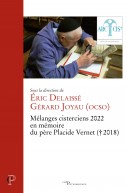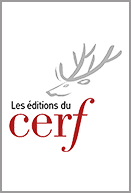
Les évêques français de la Séparation au pontificat de Jean-Paul II
Collection Cerf Histoire
432 pages - mai 2013
31,90€
--
On the occasion of the publication in 2010, by Éditions du Cerf, of the Dictionnaire des évêques de France au XXe siècle, the ‘Religions, sociétés et acculturation’ team of the ‘Laboratoire de recherche historique Rhône-Alpes’ organised a colloquium which took place at the University of Lyon in November 2010. During an evaluation of the material assembled for that working event, the major axes of research on 20th century episcopacy were defined. The first part offers a summary of the Dictionnaire focusing on the notion of ‘episcopal generations’ and comparing with approaches in two other countries, Germany and Spain. The second part follows the careers of bishops, from the things that prepare them to fulfil their role to the style they adopt, their intellectual and spiritual dimension and the reactions they inspire. Part three examines the daily management of property, political or pastoral choices, including their collaborators and their timetable. Part four explores, in relation to ecclesiological mutations, structures developed for dialogue during the century and the collective action they permit in public life. In this way, we present the strong lines of this study of a corpus which undoubtedly constitutes – in spite of mutations and contestations – an élite for the Catholic Church and French society.
- Dimensions : 145x235x30
- ISBN : 9782204095495
- Poids : 640 grammes
Avec la collaboration de : Benoît Pellistrandi, Bruno Dumons, Catherine Grémion, Catherine Maurer, Christian Sorrel, Dominique-Marie Dauzet, Étienne Fouilloux, Florian Michel, Frédéric Gugelot, Frédéric Le Moigne, Jacqueline Lalouette, Jean-Dominique Durand, Jean-François Chiron, Jean-Luc Marais, Laurent Ducerf, Olivier Chatelan, Paul Airiau, Philippe Portier, Séverine Blenner-Michel, Tangi Cavalin, Xavier Boniface, Yvon Tranvouez
DU MÊME AUTEUR
> VOIR TOUS LES LIVRES DE l'AUTEUR
DANS LA CATÉGORIE HISTOIRE DE L'ÉGLISE
Mélanges cisterciens 2022 en mémoire du père Placide Vernet
460 pages - févr. 2022
L'administration des biens des missions catholiques du Cameroun allemand et français
de Paul Noma Bikibili
700 pages - avril 2020







